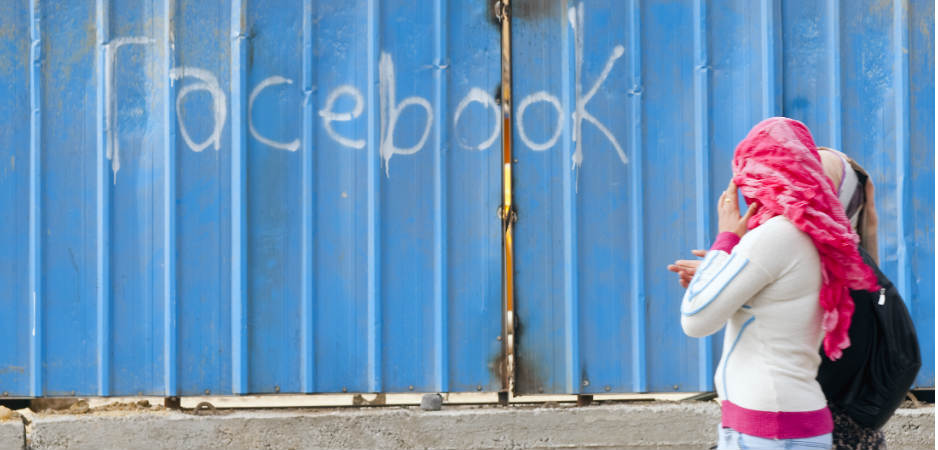Italians voted against constitutional reforms to protect their imperfect democracy. They now have to deal with a banking crisis that threatens the EU itself.
This week, Alexander Van der Bellen, former head of the Greens, beat Norbert Hofer of the far right in the Austrian presidential election. Van der Bellen promised “to be an open-minded, a liberal-minded and first of all a pro-European federal president of the Republic of Austria.” In May, Hofer had given him a run for his money and nearly emerged as the first far-right head of state in Europe since World War II.
In neighboring Germany, Chancellor Angela Merkel called for a ban on the burka “wherever legally possible” as she sought to assuage concerns about integrating over a million asylum seekers. She vowed that sharia law would never replace German principles of equality. The August 21 edition of The World This Week argued that such bans “neither improve security nor liberate women” but, unlike this author, Merkel has a big election coming up.
Speaking of elections, Ghana had its seventh election since democracy returned to the country in 1992. Nana Akufo-Addo, the opposition leader, won a tight race against John Mahama, the current president. At a time of economic turmoil, Akufo-Addo promises free high school education and economic reforms.
US President-elect Donald Trump is also promising economic reforms. In a series of tweets, he promised to reduce taxes and regulations for American companies. He was not all sweetness and light though. Trump threatened companies that move jobs overseas that he would impose a 35% tariff on goods they imported into the US. Charmingly, he slammed Boeing for the $4 billion-plus brand new 747 Air Force One for “out of control” costs. Trump ended his tweet with “Cancel Order!” It is probably entirely coincidental that this tweet came after the Boeing boss argued for free trade and criticized Trump’s proposed protectionist policies.
For all the events around the world this week, it is Italy that takes center stage. Like David Cameron, Matteo Renzi lost a referendum. Like Cameron, Renzi announced his resignation from the premiership. Unlike Cameron, Renzi lost badly, not narrowly. Italy is now in political and economic crisis. Soon, this crisis will envelop the European Union (EU).
Why has the Italian referendum caused such a serious crisis?
First, Italy’s cumbersome political system has long been dysfunctional and is close to break down. Such is the state of affairs that the government threatened to use the army against the mafia in Naples just to clean up the rubbish two years ago. Unlike many other European nations, the country does not quite have rule of law. The January 31 edition of The World This Week pointed out that “Italy’s Byzantine regulations … are honored more in the breach than observance.” Its famously fractious democracy is unable to agree upon or enact any change even as the dissatisfaction of Italians increases every passing day. Italy needs reforms but Renzi’s loss might continue the stasis of the status quo.
Second, the Italian economy is in dire straits. In the third quarter this year, its unemployment rate was 11.9%. Only Spain and Greece in the eurozone have higher unemployment rates. The Economist estimates that public debt stands at 135% of GDP. Given that Italians are living longer and having fewer children, this demographic disaster exacerbates the country’s debt burden. On January 31, this author pointed out that Italian banks were in trouble with €350 billion of bad debt on the books. Unsurprisingly, “confidence in Italian financial institutions has evaporated, credit is hard to get and the Italian economy is gasping for air.”
Dark clouds have filled Italy’s azure skies since 2008. Its economy is 12% smaller since then. Italy has been in recession for five of the last eight years. Its per capita income after adjusting for inflation is lower than in 1999. Italian productivity has been falling and its economy is ridiculously uncompetitive. The third largest eurozone “economy has been moribund for years, suffocated by over-regulation and feeble productivity.”
Many factors hobble the Italian economy. The country’s convoluted tax system is notorious. No one understands it except accountants. Its labor laws are a nightmare. According to the World Economic Forum, Italy ranked 141st out of 144 countries in terms of its hiring and firing practices. Apparently, the labor code is merely 3,000 pages-long. Unions are formidable and businesses stay small to avoid them. Consequently, there are few jobs around and getting hired is ridiculously difficult because businesses are worried to death about getting it right.
An obsolete education system deflates the Italian economy further. Here too, bureaucracy and red tape have wreaked havoc. The worthies in charge of preparing young Italian minds for the future introduced more than 1,000 laws and rules from 1990 to 2006. University barons run empires of patronage and provide an education that neither fosters critical thinking, nor teaches technical skills. Barely 7% of Italian graduates have a degree in science, engineering, technology or mathematics, creating a skills shortage in the land of Ferrari, Maserati and Ducati.
As of now, banks form the gravest risk to the Italian economy. Bad loans are a fifth of the Italian GDP. Banca Monte dei Paschi di Siena, the country’s third-biggest bank and the world’s oldest, is sinking fast. The Economist points out taxpayers have already bailed it out twice. Besides, the bank has frittered away the €8 billion it raised from share sales in 2014 and 2015. Without adjustments, the bank’s bad debt amounts to 35.5%, and it was 51st out of 51 lenders in European stress tests.
Banca Monte dei Paschi di Siena is just the tip of the iceberg. Most of the country’s banks have been small and local. They function on relationships and are quite politicized. Often, they neglect sound commercial principles and make loans too freely. In the late 2000s, they made one loan too many even as the global economy was gripped by the Great Recession.
Today, many of these loans have soured. However, borrowers have local connections and banks keep lending to support them. The “extend-and-pretend bailouts” that Yanis Varoufakis damns for pushing Greece into a black hole have been followed on smaller scale by numerous Italian bank managers. Many loans are secured by collateral, but Italy’s lethargic and outdated judicial system makes repossession impossible. As a result, too many Italian banks are bust.
To pass on the buck, Italian banks have taken a leaf out of Wall Street’s book. They have sold shares and debt to unsuspecting retail clients at inflated prices. Obviously, they are unlikely to have disclosed risks. Furthermore, such self-dealing was not only legal, but it also had favorable tax treatment until 2011. This means that sinking banks might drown thousands of Italian households who bought bank shares or debt.
 Suffice to say, Italian leaders cannot put off economic reform much longer. Political uncertainty is not helping consumer, business or investor confidence. The referendum will dent confidence further and pours cold water on reform efforts for now.
Suffice to say, Italian leaders cannot put off economic reform much longer. Political uncertainty is not helping consumer, business or investor confidence. The referendum will dent confidence further and pours cold water on reform efforts for now.
Third, the referendum boosts the Movimento 5 Stelle (M5S) or the Five Star Movement led by Beppe Grillo, a comedian-turned-politician. It weakens Renzi and Italy’s political class. M5S literally sees itself as a movement with a focus on five issues or five stars: public water, sustainable transport, sustainable development, the right to internet access and environmentalism. Members of M5S want to replace the patronage and graft of political parties with direct democracy in the form of people controlling the government through constant voting over the web.
Grillo has long played the Shakespearean fool. Many deride him as Utopian and Messianic, but the clown has a method to his madness. The Economist deems M5S to be “one of Europe’s most potent anti-establishment movements.” Both Rome and Turin now have M5S mayors. Virginia Raggi, the mayor of Rome, is the first woman to hold that position. Admittedly, she had a rough start in office, but Raggi sunk Renzi’s Rome bid for the 2024 Olympics because it “would bury the Italian capital under mountains of debt and tons of cement.”
Renzi may be hyperactive, but he is not a man of originality or ideas. He is far too much in awe of discredited Third Way politicians such as Tony Blair and the Clintons. Even Filippo Sensi, “Matteo Renzi’s king of spin,” models himself after Alastair Campbell, Blair’s legendary spin-doctor. Like his political heroes, Renzi is strong on image and weak on substance.
M5S rightly argued that Renzi’s “reforms serve to give more power to those who are already in power.” Mario Monti, who served as prime minister and as an EU high official, agreed. Renzi is a classic career politician. He became prime minister at the ripe old age of 39 years and 42 days, beating Benito Mussolini’s record to become the youngest Italian premier. He acquired the nickname “il rottamatore,” which means the destroyer for his rough-house style. Recently, he described himself as “nasty at times, arrogant and maybe impulsive.”
In the referendum, Grillo and M5S had a point. Italy has a history of authoritarianism. Benito Mussolini and Silvio Berlusconi did not cover themselves with glory for all their charisma. Renzi was proposing to restrict powers of the senate, the upper house of the national legislature. His reforms gave Rome more power over the regions. In the words of EP Licursi of The New Yorker, “these two changes would give the party in power at the national level almost complete discretion to conceive of and enact legislative measures.”
In any case, Renzi has a reputation for being power-hungry and a control freak. Italians joke how Renzi makes more decisions than Berlusconi because he has no young women to distract him unlike the previous premier. Diplomats complain that even minor matters go to Renzi and it is hard to get things done. Behind his liberal façade, Renzi might not be quite as democratic as he makes himself out to be.
More importantly, The Economist chronicled that many were uneasy with Renzi’s reforms because they proposed an unprecedented concentration of power. In its words, “the combination of a weakened Senate, a guaranteed majority and a voting system that still gives party leaders much control over deputies is seen as a recipe for authoritarian democracy.” Furthermore, the reforms would have given the prime minister greater say in picking “the president of the republic, a key figure at times of crisis.”
Luigi Di Maio of M5S rightly argued that the premise of the referendum was flawed. He noted: “In the three-and-a-half years of this legislature, there has been a law passed every five days. If you introduce a reform, saying we must pass laws more quickly, you are just creating more bureaucracy.” The Financial Times agreed. It damned Renzi’s reforms as a constitutional bridge to nowhere. In the words of Tony Barber, “What Italy needs is not more laws more rapidly passed but rather fewer and better laws.”
Despite perpetuating the political status quo and dampening animal spirits in the economy, the referendum is jolly good news for Italian democracy. The constitution that came into force on January 1, 1948, has failed to create a transparent, efficient or accountable state, but it has certainly prevented the return of fascism. It certainly needs urgent reforms, but Renzi was proposing a cure worse than the disease. Consequently, he is down though not out while M5S is on the up.
Finally, this election puts the EU in choppy waters. European leaders had reposed their faith in Renzi. After all, M5S is Euroskeptic. Italy’s banking crisis threatens the entire eurozone economy. EU rules prohibit bailouts unless bondholders take a hit. In Italy, these are “the little guys” who have already taken big hits as the prices of their bonds have crashed.
To quote The Economist yet again, Italy’s banking crisis is “an exemplar of the euro area’s wider ills: the tension between rules made in Brussels and the exigencies of national politics; and the conflict between creditors and debtors.” On January 31, this author pointed out how the country that invented modern accounting had adopted the euro through fudging its accounts with a little help from Goldman Sachs. More than any other country, Italy threatens the euro.
The Italian referendum has put the ball fairly and squarely in Brussels’ court. At some point, the EU will have to figure out whether it is an optimal currency union. It might muddle through the Greek debt crisis despite a comedy of errors, but it cannot afford to get the Italian job wrong.
*[You can receive “The World This Week” directly in your inbox by subscribing to our mailing list. Simply visit Fair Observer and enter your email address in the space provided. Meanwhile, please find below five of our finest articles for the week.]
Americans Need to Read Beyond the Headlines
Donald Trump is showing the next phase of this strategy: pure theater.
Recently, President Barack Obama pointed out that Senate Majority Leader Mitch McConnell and the Grand Old Party (GOP) figured out something very important during the Obama presidency: Most Americans either don’t know or don’t care about the nuance of how government works. “And the problem is, is that the general public is not following the intricacies of the legislature and they’re not interested in who’s to blame, they just want to see stuff done. And the one guy they know is the President of the United States, so if things don’t get done, that can advantage the politics of the other party.”
Americans know that the president is in charge of the government, and so if they are told that the government is not working, and they don’t see it working, it must be the president’s fault. This is how the Republican Party survived—and actually… Read more
Fighting Back Against Sexual Harassment in Egypt
In this edition of The Interview, Fair Observer talks to Alia Soliman, the communications manager of HarassMap, an anti-sexual harassment organization in Egypt.
When events of May 25, 2005—a day when female protesters against Egyptian President Hosni Mubarak were sexually assaulted as the police penned them in—threw the evidence of a prevalent practice into the spotlight, it was uncovering a well-established tradition. What became known as Black Wednesday marked the beginning of a battle against institutionalized and systematic use of sexual violence to silence women in conservative Egypt—a fight made possible by the accessibility to smartphones and social media.
The Egyptian Revolution of 2011 and the mass protests in Tahrir Square further highlighted the ubiquity of sexual violence in the country, with a United Nations (UN) study finding that almost 100% of women have experienced it. A 2014 law finally criminalized all forms of sexual harassment, now punishable with up to five years in prison… Read more
Millennials Shape Discussion on Gun Violence
Millennials want to see an intersectional understanding of gun violence in America.
Each generation carries its own revolution. For years, gun violence has dramatically impacted communities around the United States, and a movement for gun violence prevention has emerged to respond.
Now, as we reel and rebuild from the results of the presidential election, it is the time for a new generation of organizers to metamorph this movement into one that is intersectional, inclusive and diverse. Young organizers and activists have been left behind by a movement that has focused strongly on background checks, but it also needs to strategically focus on responses that address the intersectional oppressions linked to gun violence. My experience with gun violence reflects this nuance. In 2008, my Peruvian host sister, Tika Paz de Noboa, was shot and killed while she waited on the street outside a nightclub in Portland, Oregon. A courageous, artistic young woman, a person of Latin American origin… Read more
Female Nudity is Powerful, But Not Necessarily Empowering
The challenge of modern feminism is to find inventive ways of reframing the body to better express the complexity and diversity of women.
Can the naked female body ever be free? Is stripping off the ultimate expression of a woman’s emancipation? Or is her bared body always subject to sexual objectification?
In a foreword to The Female Eunuch (1970), Germaine Greer imagined a feminism that would win women the “freedom to run, shout, talk loudly and sit with your knees apart.” Perhaps this is what she had in mind when, a year later, she posed naked for the self-styled “sex newspaper” Suck, agile and impish, with ankles hoisted up above shoulders, her eyes peering out unapologetically from between her knees. This was an assertive gesture, designed to “short-circuit” the tireless commercialization of women’s bodies in pornography. Instead of pert breasts and neat pudenda, here were labia and anus in their un-coy, unaffected, un-groomed glory. There seemed nothing contradictory… Read more
India Hopes for Pakistan’s Diplomatic Isolation
Pakistan’s uneasy relationship with extremism puts it in danger of diplomatic isolation from the international community.
After the US Congress’ decision to disallow the financing of F16C/D Block 52 multirole fighter planes to Pakistan through the US Foreign Military Financing Program over concerns of inadequate action against the Haqqani network, the idea of a diplomatic isolation of Islamabad has emerged as a new buzzword in Indian diplomacy.
It also marks the beginning of a new strategic thought among the Indian foreign policy mandarins. In the past, Pakistan has been quite proactive and successful in internationalizing the issue of Kashmir, but it was always felt that there was never an appropriate and systematic counter-strategy pursued by India, except for the formal press releases of its Ministry of External Affairs. However, after the cancellation of the F16 deal, it is felt that India has finally come up with a strategic shift and is being tactful and vigorous in implementing it… Read more
The views expressed in this article are the author’s own and do not necessarily reflect Fair Observer’s editorial policy.
Photo Credit: Università Ca’ Foscari Venezia
Support Fair Observer
We rely on your support for our independence, diversity and quality.
For more than 10 years, Fair Observer has been free, fair and independent. No billionaire owns us, no advertisers control us. We are a reader-supported nonprofit. Unlike many other publications, we keep our content free for readers regardless of where they live or whether they can afford to pay. We have no paywalls and no ads.
In the post-truth era of fake news, echo chambers and filter bubbles, we publish a plurality of perspectives from around the world. Anyone can publish with us, but everyone goes through a rigorous editorial process. So, you get fact-checked, well-reasoned content instead of noise.
We publish 2,500+ voices from 90+ countries. We also conduct education and training programs
on subjects ranging from digital media and journalism to writing and critical thinking. This
doesn’t come cheap. Servers, editors, trainers and web developers cost
money.
Please consider supporting us on a regular basis as a recurring donor or a
sustaining member.
Will you support FO’s journalism?
We rely on your support for our independence, diversity and quality.











